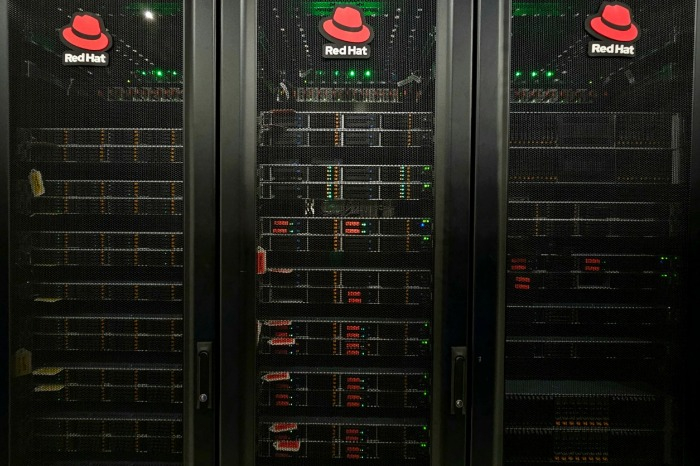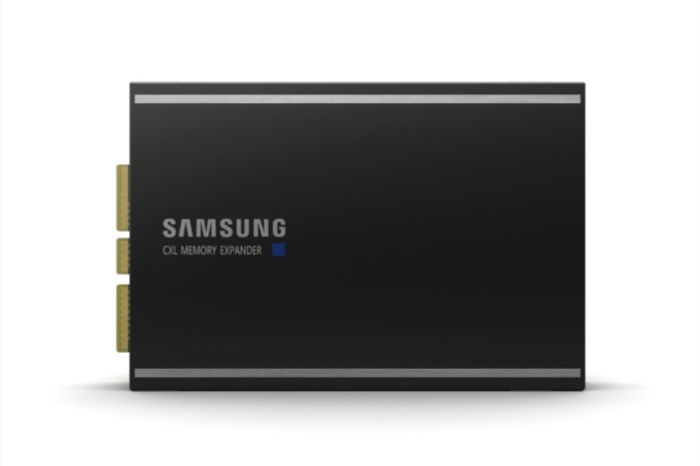Korean chipmakers
Samsung Electronics builds Red Hat-certified CXL infrastructure
This is the industryŌĆÖs first CXL infrastructure, on which CXL products and software can be directly verified
By Jun 25, 2024 (Gmt+09:00)
2
Min read
Most Read
Macquarie eyes its 1st Korean data center valued around $722 mn


S.Korea's LS Materials set to boost earnings ahead of IPO process


SK Inc. in talks to sell PharmtecoŌĆÖs US CDMO plant to Novo Nordisk


Galaxy Ring, new foldables set to steal the show at Samsung Unpacked Paris


POSCO gears up for carbon-free steelmaking with hydrogen



Samsung Electronics Co. has set up the industryŌĆÖs first Compute Express Link (CXL) infrastructure, certified by Red Hat Inc., the worldŌĆÖs leading provider of open-source solutions, enabling speedy CXL product development and tailored product supply to customers.
South KoreaŌĆÖs largest memory chip provider, also the worldŌĆÖs No. 1, on Tuesday announced the successful building of the CXL infrastructure on which it can directly verify server configuration elements, including CXL-related products and software, at the Samsung Memory Research Center (SMRC) in Hwaseong, Korea, thanks to Red HatŌĆÖs certification.
Earlier this month, it successfully verified its CXL memory module DRAM (CMM-D) product with the infrastructure, which is also the first of its kind in the semiconductor industry, said the company.
The Red Hat-certified CXL infrastructure is expected to accelerate the development of CXL products because Samsung Electronics can immediately register CXL products with Red Hat after verifying them at the SMRC.
The new infrastructure is also expected to enable the Korean chipmaker to provide customized CXL solutions to different customers ŌĆ£by optimizing products at earlier development stages,ŌĆØ the company added.

This milestone comes about six months after Samsung Electronics successfully validated its CXL memory productŌĆÖs interoperability on Red Hat Enterprise Linux (RHEL) 9.3, an enterprise Linux operating system (OS) developed by the US software developer, in December last year.
CXL, A NEXT-GENERATION MEMORY FOR AI AND ML
CXL is a unified interface standard that connects various processors, such as central processing units (CPUs), graphics processing units (GPUs) and memory devices.
Its demand is expected to grow in the era of artificial intelligence computing and machine learning, which require massive data processing, because it can expand memory capacity and bandwidth well beyond what is possible today, explained Samsung Electronics.
According to Yole Intelligence, the CXL market is forecast to grow from $1.7 million in 2022 to $2.1 billion in 2026, of which 70%, or $1.5 billion, would be made of CXL memory solutions.

Samsung Electronics' crosstown rival SK Hynix Inc. also has been in a race to develop CXL memory products.┬Ā
The latest development is also expected to expand the CXL ecosystem, which is still in its infancy.
Samsung Electronics and Red Hat have been working together to develop CXL open-source and reference models since they signed a memorandum of understanding in May 2022 to collaborate on next-generation memory.
Samsung Electronics formed the CXL consortium in 2019 with representatives of global tech giants such as Nvidia, Google, AMD, Arm, Intel and IBM serving alongside Samsung on the the consortiumŌĆÖs board of directors.
Since then, it has forged partnerships with data centers, server and chipset manufacturers to develop next-generation interface technology.
Write to Chae-Yeon Kim at why29@hankyung.com
Sookyung Seo edited this article.
More to Read
-
 Korean chipmakersSamsung sets up team to win AI chip deal from Nvidia
Korean chipmakersSamsung sets up team to win AI chip deal from NvidiaMay 06, 2024 (Gmt+09:00)
5 Min read -
 Korean chipmakersSamsung to unveil 3D DRAM in 2025 to lead AI chip market
Korean chipmakersSamsung to unveil 3D DRAM in 2025 to lead AI chip marketApr 02, 2024 (Gmt+09:00)
3 Min read -
 Korean chipmakersSamsung Elec moves a step closer to CXL commercialization
Korean chipmakersSamsung Elec moves a step closer to CXL commercializationDec 27, 2023 (Gmt+09:00)
3 Min read -
 Korean chipmakersSK Hynix showcases cutting-edge CXL, AiM memory at OCP Summit
Korean chipmakersSK Hynix showcases cutting-edge CXL, AiM memory at OCP SummitOct 20, 2023 (Gmt+09:00)
2 Min read
Comment 0
LOG IN


